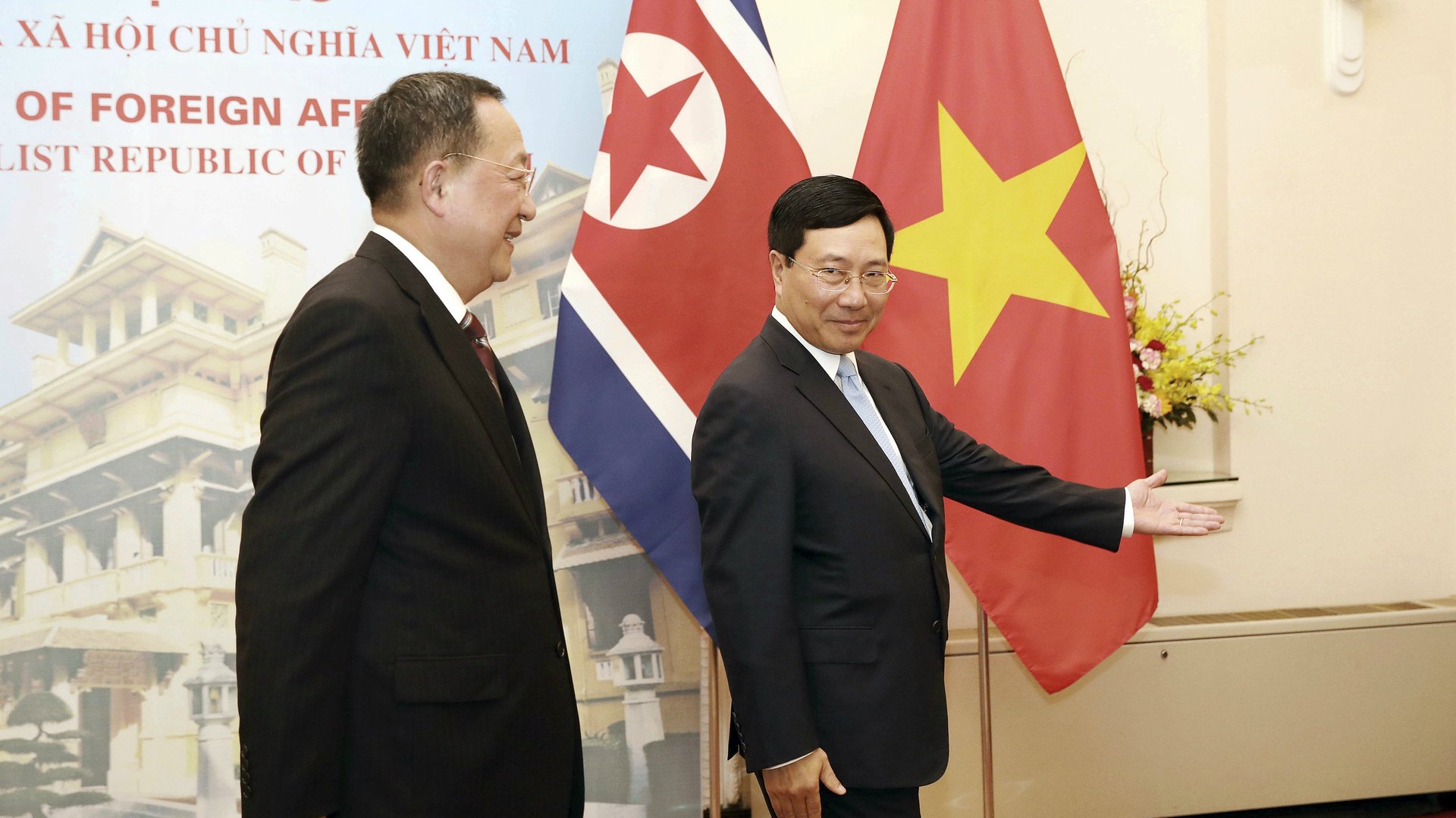North Korea is looking to Vietnam for economic inspiration
North Korea has a lot to learn from Vietnam, and it appears to know it. North Korean Foreign Minister Ri Yong-ho recently completed a four-day trip to Vietnam to meet with his counterpart there, Pham Binh Minh. Among Ri’s goals was to study Vietnam’s successful economic reforms, according to the Yonhap News Agency.


North Korea has a lot to learn from Vietnam, and it appears to know it. North Korean Foreign Minister Ri Yong-ho recently completed a four-day trip to Vietnam to meet with his counterpart there, Pham Binh Minh. Among Ri’s goals was to study Vietnam’s successful economic reforms, according to the Yonhap News Agency.
In the early 1990s, Vietnam and North Korea were similarly poor, with a GDP per capita of about $2,000 (in 2011 US dollars). Since then, Vietnam’s GDP per capita has tripled, while North Korea’s has fallen. Vietnam’s remarkable growth is largely a result of the government loosening it’s grip on the economy, allowing market forces to flourish in the manufacturing and service sectors.
At the same time, Vietnam’s Communist party has maintained complete control over the country, cracking down on political dissent. This is a feature of Vietnam’s economic rise that is likely to appeal to North Korean dictator Kim Jong Un.
If North Korea does decide to follow Vietnam’s path, it would mean embracing globalization. In 2017, Vietnam’s trade as a percentage of GDP was over 200%, making its economy the most globalized of any sizable country.
Vietnam’s exceptionally globalized economy is a result of its focus on exports. Like China before it, communist-run Vietnam has opened up its cheap labor market to foreign investors and become a hub for low-cost manufacturing. The country is now a major exporter of electronics and apparel, with the US and China as the main buyers of its goods. In order to make those goods, Vietnam is a big importer of machine parts and natural resources from South Korea and China.
Economist Marcus Noland, a leading researcher on the North Korean economy, believes the country’s economy could take off if it opened itself up to foreign investment like Vietnam did. Bordering economic powerhouses China and South Korea, and just across the sea from Japan, North Korea is well placed to take advantage of trade relations with its richer neighbors. Noland’s research suggests freer trade would lead to a huge expansion of the manufacturing and mining industries and, as a result, massive improvements in living standards.
Rising incomes do not necessarily lead to a push for democracy, as Vietnam and China have shown. North Korea’s leaders are likely studying this aspect of Vietnam’s path as closely as any other.